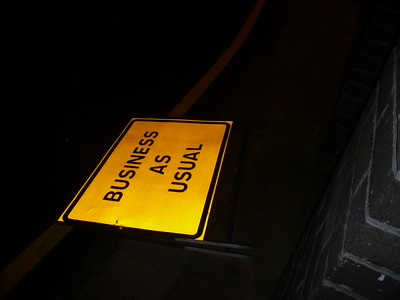I have said many times that the problems at WCC start and end with the Board of Trustees. For whatever reason, the Trustees have checked out. One trustee insists that the Board is an “advisory board.” Based on the performance of the WCC Administration, I’d like to know exactly what advice the Board is dispensing. But it raises the question, What would real Trustee oversight look like?
The WCC Board of Trustees is on autopilot. That works to the advantage of the Administration, but it doesn’t work for the organization. It also doesn’t work for the Washtenaw County taxpayers. Since you can’t lead from the rear, the first step is to get the Trustees off autopilot.
One way to do that is to insist that the Trustees take a more active role in planning and conducting their meetings. About half of Michigan’s community college boards use working sessions in addition to monthly meetings. Not surprisingly, WCC’s Board does not conduct working sessions because – well, they don’t work.
Controlling the meeting agenda, however, is crucial to restoring actual Trustee oversight to the meetings. Right now, most of the agenda and the order in which items appear are pre-programmed. Consequential items, like the “personnel report” are presented for the Trustees’ approval with no discussion. Unfortunately, this is anything but a perfunctory task. Each of the proposed new (or refill) positions should be presented to the Board individually, and the Board should be asking questions about the necessity and cost of each position. This simple change could save the College literally millions of dollars each decade. Making the Administration publicly justify the need for any proposed position would have a chilling effect on administrative growth.
Substance is the basis of authentic Trustee oversight
Instead of entertaining the Trustees with song-and-dance “special presentations,” the Trustees should be discussing substantive matters that impact the College. Those substantive matters might include the deep cuts to the College’s maintenance budget. Or whether WCC needs 10 vice presidents. Or the relative merits of seeing tax-backed bonds instead of stressing the General Fund with debt obligations.
If the Trustees exercised better control over their own meeting agendas, we might debate the relative merit of implementing an asset protection clause. We might talk about the need for on-campus childcare. Or how to recruit students into technical and vocational programs. Or whether WCC should provide an on-campus medical clinic for its students. In the age of “free community college,” are WCC students and prospective students maximizing available federal financial aid? How much is the College spending on consulting contracts and outsourced services? And how do these expenditures hide the actual cost of the Administration?
Instead, we have a canned agenda designed circumvent substantive discussions and consequential decisions. Under those circumstances, we can never have actual Trustee oversight. Washtenaw County taxpayers are not getting actual value for our investment in WCC. Like the Trustees, the public gets to watch the song-and-dance while the Administration spends the institution blind.
Photo Credit: Lars Plougmann , via Flickr
























